7 Mac Myths Debunked (Or Proven)!
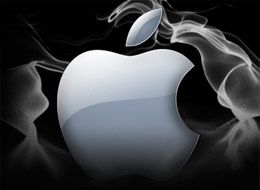
Nothing prompts a more visceral, passionate response from computer users than Macs, whether you've been using them from day one, recently switched from Windows, or never even touched one. Apple fans tout the elegance of the Mac OS X operating system, its ease of use, and stability, as well as the premium designs Apple offers. Windows loyalists, on the other hand, see Macs as overpriced and complain that Apple offers too little in the way of choices. Microsoft recent ad campaign echoses these sentiments while also portraying Mac users as being too cool and more concerned with aesthetics than power.
So who's right? This heated rivalry has certainly created its fair share of misconceptions. Sometimes these so-called Mac Myths define Apple products unfairly. Other times, they're dead-on. Despite concerns about higher prices relative to Windows machines, Mac market share remains at a respectable 10 percent in the U.S. And with Snow Leopard, Apple's next-generation OS, just around the corner (and possibly a Mac netbook) interest in Macs is still strong. For all those considering the switch, we re-evaluate some of the Mac's highest-profile myths to ease your decision-making.
Myth 1: Macs Are More Expensive Than PCs

Users of $399 netbooks and sub-$600 notebooks are likely already laughing at the prospect that the boutique-chic Macs of 2009 could possibly be as affordable as what they're using. In some sense, they're right--the famed "Apple Tax," a profit margin that Apple enjoys on its hardware that trends significantly higher than its competition, is truer now than ever. Microsoft CEO Steve Ballmer recently rubbed it in by saying that Mac buyers are simply paying $500 for the Apple logo. Is he right?
A recent NPD Group study found that the average Mac laptop purchase price was over $1,493, while the PC notebook average selling price averaged only $637. According to a TBR study, average selling prices of Macs over the last several years have held stable, even amid a terrible economy. PC makers, on the other hand, have seen greater drops, with their average selling price falling by 13 percent.
"With Windows there are more alternatives," explained Roger Kay, president and founder of Endpoint Technology Associates. "But it's part of Apple's branding--they're branded as a premium product, and it's part of their product positioning to be expensive." However, Apple's recent product releases have been seen as good values compared with other branded hardware solutions. According to Yair Reiner, senior analyst for applied technology at Oppenheimer, the 2009 all-in-one iMac revisions out-spec similar HP all-in-ones, at a slightly lower price to boot.
It's also important to consider that Macs tend to have better included software packages such as iLife and, unlike Windows machines, aren't festooned with trial software that slows down the system. "The Apple pricing takes into effect the whole aspect of value-added services," said analyst and president of Creative Strategies Tim Bajarin. "They're providing an experience within a Mac framework. They've been able to garner significant edge on competitors, and keep prices, which have been a bit above, where they are."
VERDICT: Yes, Windows machines tend to offer more bang for your buck in terms of specs, when it comes to netbooks and big-screen desktop replacement notebooks. But many are willing to pay a premium for Macs because of the emphasis Apple places on design, ease of use, and customer service.
Stay in the know with Laptop Mag
Get our in-depth reviews, helpful tips, great deals, and the biggest news stories delivered to your inbox.
Myth 2: Mac OS X is More Secure Than Windows
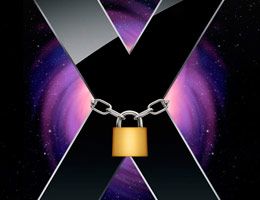
To be a Mac user is to know the joy of not having to worry about spyware slowly eroding the performance of your machine. Or so the public perception goes. While it's true that Macs are generally freer of viruses, much of that is due to the simple facts that a) Mac market share worldwide is slightly under ten percent, and b) viruses and malware in this decade are often made by malicious international groups intent on causing the most harm with the fewest resources. "That's the big protection Macs have, being the minority operating system," said David Perry, global director of education for Trend Micro. "The world of malware is entirely pointed at the Windows community, with small enough incursions into Mac as to be infinitesimal ... There are less than 100 active malware infectors in Macs in the entire world, versus the PC--close to twenty million infectors."
Mac file paths are also designed differently than Windows files, making viruses incompatible across operating systems. Macs also benefit from being heavily micromanaged by Apple on both the hardware and software ends. Software updates come at once from a single source, at regular intervals, making them that much harder to exploit. And, yes, Mac's OS X has its advantages as well. "The Mac OS X operating system is built upon a true Unix kernel and as such has always had a strong security model that prevents users from damaging other users files, or system files," said Chris Andrew, vice president of security technologies for Lumension, an endpoint security company.
The bottom line is, it's a pain in the butt for hackers to figure out Mac malware while making it worth their time and effort. If Mac market share were to grow, though, it might very well be a different story. Remember, though, that a Windows partition on a Mac is still as vulnerable as a Windows PC. "That install is authentic enough that it's infectable, but can't reach across to the Mac partition--yet," said Trend Micro's Perry. "Never say never."
VERDICT: Yes, Macs are indeed less plagued by viruses. For now.
Myth 3: Macs are Easier to Use
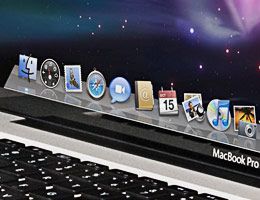
With a more streamlined interface, OS X has been long celebrated as easier to learn than Windows. For first-time computer users, the popular opinion may be right. "For a home user, especially those without much computer knowledge, Macs will be easier to use," said Justin Esgar, Apple-certified system administrator for Virtua Computers. "The OS X dock makes programs easy to access, and the installation is far more intuitive than on a PC. Most important, though, is the lack of viruses and spyware on a Mac."
Endpoint Technology's Kay, whose family uses both Windows and Mac, agreed. "Macs have been more intuitive. It shows in the youngest children--put them in both environments, they figure out Macs pretty quick."
Windows, however, is already the OS of choice in over 90 percent of worldwide machines. Switching isn't just a matter of transferring files: it's also about interface familiarity and availability of software. For longtime Windows users and those who want to upgrade and tweak their systems, Windows would in fact be easier to use because that is what they're accustomed to. Esgar pointed out that, for large corporations "who have been relying on the same brands of software for years, it can take a long time to switch software, never mind replacing all the hardware."
In speaking to users who have switched, opinions differed. For experienced Windows users, "easy" is in the eye of the beholder. Bioware senior content producer Dallas Dickinson uses a PC at work for gaming and a Mac at home for creative work. "Essentially, Mac is great when I don't want to do anything advanced. However, Mac gives you absolutely no information when something isn't working. If my Mac fails to initiate a Wi-Fi connection, you don't know why," Dickinson explained. With my PC, I can find out whether the problem is with my Wi-Fi card, the Wi-Fi network, or the Internet connection."
If you're a basic user, however, Windows-to-Mac switcher Jon Tze said it doesn't make a difference, arguing that both Windows and Mac, in the end, run a basically similar graphic interface. "It doesn't make much difference if you aren't a power user. You click on IE or you tap Firefox. Either way you're using MS Office. Whether it's the Start menu or the magnified dock, it's all easy."
VERDICT: Yes, for beginners, but Macs involve a small learning curve for Windows loyalists, and they can be more difficult to troubleshoot.
Myth 4: Macs Are Better for Artists and Students
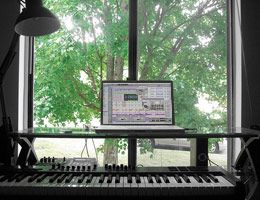
They're sleek, they're sexy, and they have a creative suite of tools baked right in; is it surprising that Macs are favored by students and artists? Apple's purported ease of use and the iconoclasm encouraged by the company's perpetual outlier status in the computer world at large have built Mac's image as a superior educational computer as well as a platform preferred by creative types worldwide. For creative projects, it's a rep well-earned: iLife offers a suite of tools that Windows has yet to match. "I make a lot of short videos for fun, and to promote my various artistic endeavors such as my rkutner channel on YouTube," said Rob Kutner, an Emmy award-winning writer for The Daily Show. "Mac's integrated iMovie/iDVD platform is the perfect fit for my DIY style--not to mention being able to view footage on the go on my iPod or phone."
Macs have been a standard for years for graphic designers (font management, color accuracy) and filmmakers (Final Cut, Apple's own software, is an industry standard), but for 3D work such as rendering, Windows machines have been the platform of choice. Now that Macs and Windows machines share Intel and Nvidia processors, the differences are disappearing under the hood, but Macs still have a professional edge for sound and video. "You can have one computer do almost anything. My system can go from a grade-A audio-mixing console to a grade-A video-editing station in seconds," said Matthew Polis, a professional film sound designer and sound mixer in New York City who has been using Macs for years. "My first venture into electronic music-making was with an HP laptop But [the PC] comes stocked with all sorts of game demos, CD jacket makers, video shake-'em-ups, LightScribe hee-haws ... It made me feel like I just bought a used computer."
For students, the value of Macs is more debatable. Research and basic educational software are available on Macs and Windows alike--and since the rise of netbooks, far cheaper options are available among PCs than Mac machines. But from a tech administration viewpoint, Macs might be a cheaper setup. Michael Lee, network administrator and CIO for Putnam Valley Central Schools, has an all-Mac environment for its low-maintenance advantages: "Our district only employs one tech per building. Our tech-to-computer ratio is one tech to 670 computers. In the PC world, that would be unheard of. OS X' stability and security allows us to deploy our laptops without fear of spyware, malware, viruses, or random Windows events." While this perspective may not matter to students, it's an intriguing behind-the-scenes look at why Macs are so prevalent in school systems.
VERDICT: Macs are better for artists, but students could do just as well (and save money) with a PC.
Myth 5: OS X is More Stable Than Windows
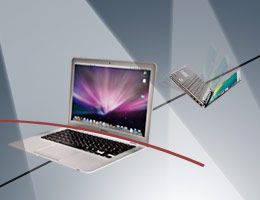
That all depends on which version of Windows you're talking about. While XP has been a relatively stable OS, Vista's botched launch became so infamous that Apple took the reins with a series of "Mac vs. PC" ads that emphasized how relatively crashproof OS X was compared with Vista. Brett Jaffe, president of IT4, a Boston-based IT services company, said, "They had a security contest about two years ago--hacking through OS X and Vista. They found that the code quality in the Mac was cleaner. That could cause it to be a bit more difficult to hack the code. It's also why Macs tend to run faster with fewer crashes."
Another reason for Mac stability lies in what has often been perceived as a weakness to Windows users: there are relatively few hardware variations among Macs. "The one thing Apple has over Microsoft is that they not only make the software, but the hardware also," said Virtua Computers' Esgar. "This avoids driver compatibility issues in which an outside manufacturer's software does not sync perfectly with the Windows operating system."
Windows 7, which is already in usable beta and is reportedly coming out in final form later this year, will help fix a number of Vista's problems. "Windows 7 I have seen, and it's a drastic improvement," Jaffe said, but leaves the final verdict on 7 up in the air, noting, "I've had a Mac at my house for a year in a half and never had a problem, but my PC at the office I have to reboot every day or two."
Analyst Tim Bajarin agreed that Microsoft's new OS will make a difference: "Windows 7 is a huge improvement over Vista because it simplifies the user interface: it's cleaner, boots faster, and has a simpler taskbar on the bottom. Windows 7 will be a more worthy competitor to the Mac as it stands today." But, Bajarin added, Apple also has a new wrinkle on the horizon, named Snow Leopard. "Mac has a new OS which we haven't seen yet. With the next iteration, because they own the hardware and software, I wouldn't be surprised to see Apple leapfrog Windows 7 again."
VERDICT: Although Windows 7 may close the gap with Apple in the stability department, Macs remain rock-solid machines.
Myth 6: Macs Are Bad for Gaming
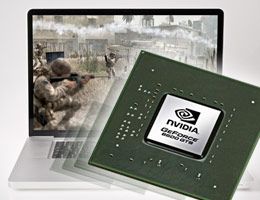
Traditionally, Macs have been largely ignored in the realm of interactive entertainment. Due in part to the vast Windows market share and a developer-wide adoption of Microsoft's DirectX graphics, it's hard to find a range of titles as impressive as what's available for Windows. Using OpenGL instead of DirectX for graphics usually means that Mac versions of popular games are left to dedicated companies to port over, like Aspyr Media. "On the technical front, Macs are easily on a par with PCs for games," said Glenda Adams, director of technology and development at Aspyr Media. "There really isn't any reason Macs can't run the most recent top games."
To make matters worse, until recently many Macs didn't have their own discrete graphics cards. That part has massively changed: all current Macs feature top-shelf Nvidia chipsets, which along with leading-edge Intel CPUs, makes them theoretically capable of top-notch gaming. "Now that you can get a GeForce GPU in any Mac--both desktop and notebook--it means that all Macs have become viable as gaming systems," said Ken Brown, public relations manager for Nvidia.
If a limiting factor to Mac games remains, it's the smaller market share of the platform. "Other than Apple retail stores and some Best Buy facings, there aren't many outlets to sell Mac games," Adams noted. Publishers are hesitant to spend development money on a smaller user base. A future solution to rescue the Mac: an App Store much like the one for the iPhone. Digital distribution helped Aspyr sell more copies of Call of Duty 4 last fall, and there's no reason why indie games couldn't see a renaissance on the Mac.
Browser games, however, could be an Achilles' heel. "The tournaments I play on WorldWinner.com are far more compatible with the PC version of Internet Explorer," said Kavitha Shah, a competitive casual gamer. Until Safari and Firefox become compatible with a greater variety of Web game sites, it could become another pothole on the gaming road for Macs.
VERDICT: Macs could be great for games, but the market hasn't caught up to supporting them yet.
Myth 7: Macs are the Fastest Windows Machines
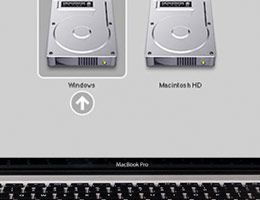
Can a Mac really run Windows software better than a Windows PC? It wasn't so long ago that Apple made headlines with claims (supported by tech enthusiasts) that one of the fastest Windows laptops was actually a PowerBook. To update the current status of the argument, we tested the late-2008 13-inch aluminum unibody MacBook--the 2.4-GHz model, with 2GB of RAM and an Nvidia 9400M GPU--and compared its scores against category averages for thin-and-light machines in the MacBook's ballpark.
Using Boot Camp to run Windows Vista, playing F.E.A.R. (a decent-powered 3D graphics game) produced 35.6 frames per second on autodetect--just shy of the 36-fps category average, with an equal 14 fps when running the game with visual effects maxed out. As a gaming machine, it would seem, the MacBook is a standard Windows laptop.
Benchmark tests proved equally solid. When running PCMark Vantage, the MacBook came out slightly ahead the category average (3,093 vs. 2,825). It produced above-average numbers in 3DMark03 and 3DMark06: a high 5,782 (versus the 2,738 category average) and 2,146 (versus 1,227), respectively--nearly doubling both averages. The latest 13-inch MacBook has its powerful Nvidia 9400 graphics chip to thank, as this GPU is rare on Windows machines with the same display size.
VERDICT: Running a direct-boot version of Windows, there's very little a Mac machine can't do. And, in some instances, it may even edge the competition as a dedicated Windows machine.
